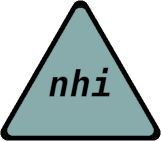nhi is a revolutionary tool which automatically captures all potentially useful information
about each executed command and everything around, and delivers powerful querying mechanism.
nhi keeps records of:
- command
- output of command
- exit status of command
- working directory at the end of command execution
- start time of command
- finish time of command
- shell prompt at the time of command execution
- (and much more in the future 😄)
nhi also keeps records of information about shell session in general.
These features allow retrievement of commands executed in past and whole shell sessions, as well as all other useful information in a convenient way.
nhi daemon is based on eBPF - a technology built into linux kernel.
Usage of eBPF guarantee a great performance and low overhead of the tool, because tracing is being safely done inside kernel.
nhi does not affect behaviour of any program/process (and OS in general).
Watch the introductory video to see how nhi works in practice.
For the full documentation, read the nhi(1) man page.
For quick reference, use nhi --help flags.
bash or zsh, x86_64 architecture, systemd and linux kernel 5.8+.
Some major distributions that ship with the linux kernel 5.8+:
- Debian 11
- Ubuntu 20.10+
- Fedora 33+
xterm based terminals are highly recommended. (If you don't know whether your terminal emulator is xterm based or not, it most likely is xterm based. xterm is a standard for terminal emulators.)
Step 1:
Ubuntu has oddly compiled bash and zsh binaries which are missing some data required by nhi. To install shells that are compiled "normally", like on every other distro run:
sudo apt-get remove zsh-common
sudo add-apt-repository ppa:strang1ato/default-bash-and-zsh
sudo apt-get update
sudo apt-get install --reinstall bash
and if you were using zsh:
sudo apt-get install zsh
From now bash and zsh will be upgraded/installed only from the newly added repository.
Step 2: Run:
sudo add-apt-repository ppa:strang1ato/nhi
sudo apt-get update
sudo apt-get install nhi
Step 3: Add to the end of your .bashrc:
source /etc/nhi/nhi.bash
And if you use zsh add to the end of your .zshrc:
source /etc/nhi/nhi.zsh
Step 4: Restart your computer.
Step 1: Install objdump, awk, sqlite3, libsqlite3-dev and libbpf-dev (example for linux debian systems):
sudo apt-get install binutils gawk sqlite3 libsqlite3-dev libbpf-dev
Step 2: Download all seven files from the latest release, and put them in a new empty directory.
Step 3: Go to the new directory and run:
sudo -E bash ./install
Step 4: Restart your computer.
In order to check if you installed nhi succesfully open new terminal window and execute for example:
echo nhi test
and
nhi fetch {-1}
If you see "nhi test" once again, it means that nhi is properly installed.
Contributions are welcome! Any tips and suggestions are appreciated. If you found any bug feel free to submit a new issue.


